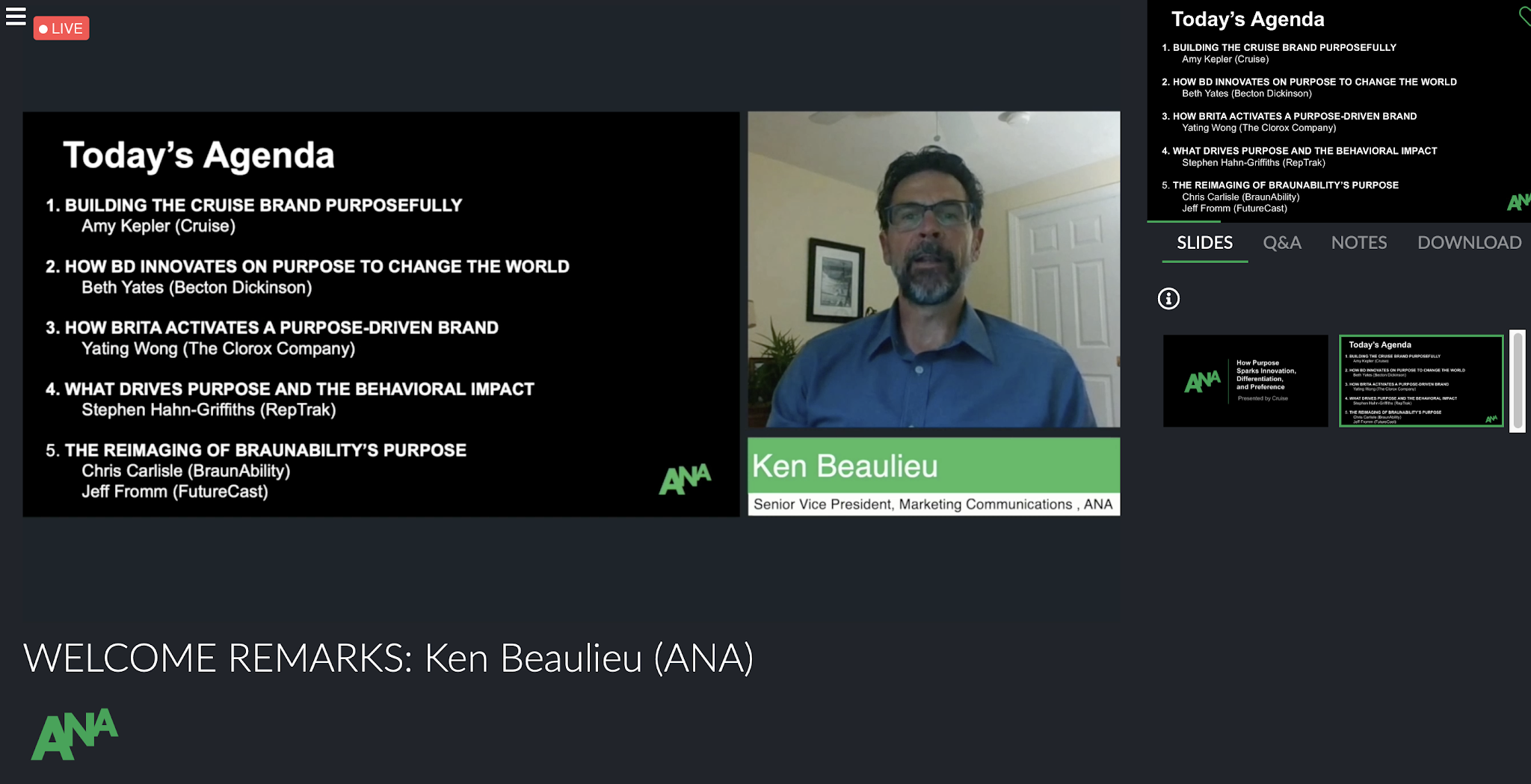Exploring a post COVID-19 future; A vision of the “New Normal” from a cultural and consumer view | Cecilie Mengel
I participated in the A vision of the “New Normal” from a cultural and consumer view Zoom-niar this morning, which was held by discover.ai and AbInBev. Jonathan Williams, the founder of discover.ai, made it clear from the beginning that he was not about to present consumer research. The company looks at online sources for insights, and he was about to present the main findings from the newest report.
The presentation started off with a quote from Rob Willer, professor of sociology, psychology, and organizational behavior at Stanford University: ”To beat the pandemic, we need a more rapid change of behavior than I can think of in recent human history”. This quote set the tone for the rest of the conference and led Williams to go right into his first point of the day; we can see all kinds of behavior-changing now due to the pandemic. We’re seeing consumer behavior change in hygiene, health, enjoyment, family, home, personal care, mental wellbeing, socializing, individuality, indulgence, and luxury. While these behavior changes seem rather obvious, the interesting thing to think about becomes: what trends are going to sustain after the pandemic? And why?
4 macro themes were touched upon. The first one was “being stronger in yourself” where learning to navigate big changes, understand them, and internalize them was highlighted. From this first macro theme, what we learned is that once people have been through more extreme and challenging experiences in their lives, survived it, and come out stronger, they have the knowledge and experience to shape their lives. What this might mean for consumers, when we get out on the other side of Covid-19, is that people may be more self-reliant, creative, and resourceful. Now, what this implies is that consumers might turn less towards governments, companies, and brands for guidance in their lives and “right answers”, and instead rely on themselves and their intuition.
The second macro theme, redefining who you are, means that consumers will find out who they really are during these times, and will seek a simpler way to live. What this theme implies for brands is the importance of showing consumers a lifestyle they can connect with. Brands need to identify with people to connect and build relationships with them, which will be of high importance post Covid-19.
The third theme, forging empowering social bonds, means consumers put greater reliance on others and relationships as a means of survival and enriching their life. “It is the norm for brands to think about purpose, but a lot of focus now is how we are providing support and love to each other in a practical community kind of way”, Williams said. For brands, this means that consumers will evaluate all of their relationships post Covid-19, including brands,
as it becomes clear that social connection is key to our lives. Brands, therefore, need to show their ability to provide love and support to others.
The last macro theme of the day was finding more meaning in experiences. This theme touched upon that experiences play an important role in keeping people emotionally engaged in their everyday life. Even though it is nothing new that brands constantly try to build experiences, what will be different post Covid-19 is that consumers may value brand experiences based on the meaning they can give to their lives.
Some of the last points made during the conference came from David Cousino, global brand insight director at AbInBev, who said that we need to “build a holistic view of consumers to build our picture of a post COVID world”.
Jonathan Williams
https://www.linkedin.com/in/jonathanw-cso/
David Cousino



